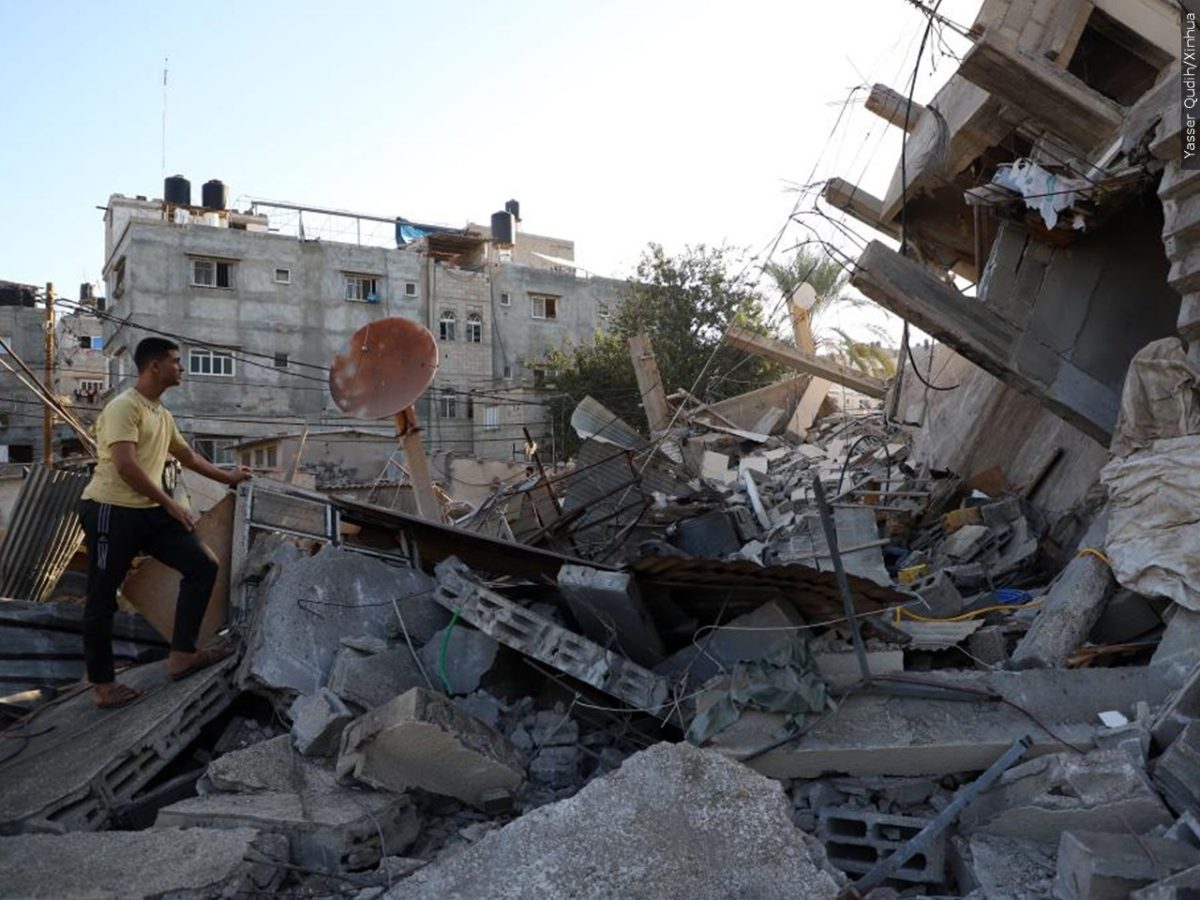On Oct. 7, members of the militant group Hamas invaded the state of Israel, killing over 1,400 Israelis and injuring at least 4,500. Israeli civilians were overrun and caught off guard, resulting in a death toll larger than the last 15 years of aggression in the Israel-Palestine dispute combined.
Hamas, which has been classified as a Foreign Terrorist Organization by the United States since 1997, also killed at least 30 U.S. nationals in the assault. Additionally, 203 people were taken hostage and into Gaza. That same day, Israel declared war on Hamas.
In response to the attacks, Israel rained airstrikes down on the Gaza Strip, the territory to the south of Israel. Although Gaza is occupied by Israel, Hamas has held political control in the region for years. As of Oct. 19, Israel’s counter attacks have resulted in over 3,400 deaths and more than 12,000 injuries in the Palestinian territory.
The Israeli Defense Forces, or IDF, is the national military of Israel. They called for the residents of northern Gaza to evacuate into the south. As of Oct. 21, the United Nations says that at least 1.4 million Gazan people have been displaced, and over 500,000 are in U.N. shelters. However, these airstrikes only preempt the ground invasion the IDF is preparing to mount.
In addition, Israel has fully laid siege to the Gaza Strip. This includes the import of food, medicine, fuel and fresh water to the citizens of Gaza, who were already largely impoverished to begin with. With these life-sustaining supplies dwindling, a humanitarian crisis has ensued. On Oct. 18, The United Nations Relief and Works Agency for Palestine Refugees in the Near East, or UNRWA, called the situation an “unprecedented catastrophe.”
The Gaza Strip has long been grounds for Israel and Palestine to conflict. It is home to over 2 million Palestinians, but Israel has occupied the region since 1967. Being only about 140 square miles, it is one of the most densely populated regions in the world.
Dr. Juli Gittinger is an assistant professor of religious studies in the Department of Philosophy, Religion and Liberal Studies at GC. She believes that Israel has the right to strike back against Hamas but is doing so in a manner resulting in too much loss of life.
“Although Hamas’s attack with the rockets was very effective, of course, Israel’s going to hammer back threefold,” Gittinger said. “Their current aggression against Palestine, however, is completely unbalanced and not proportionate. They are evicting millions of Palestinians out of Gaza now. They’re fleeing to Egypt; there’s an interesting Biblical irony there, of course, since the Jews left Egypt once upon a time. It’s creating a genocidal situation.”
In 2007, Hamas became the dominant political party in Gaza. It aims to establish an independent Islamic state in all of the historic Palestinian lands. Hamas has long said that abolishing the state of Israel is necessary in order for this goal to be met but has let up on that invasive rhetoric in recent years. Nonetheless, that has not stopped aggressive action from escalating in the region, now to the point of all-out war.
Dr. Brian Newsome is a professor of history and the dean of the John Sallstrom Honors College here at GC. He provided some insight into the history of Hamas’s governance in this region.
“The daily lives of ordinary Palestinians in Gaza have gotten increasingly dire, and while Hamas is trying to direct that anger at Israel, part of it is due to the policies that Hamas is pursuing as the governing organization in Gaza,” Newsome said.
Newsome also commented on how the U.S. is working to support Israel as its ally without endorsing the unnecessary murder of so many Palestinian citizens in Gaza.
“You’ve seen the Biden administration moving from unilateral support for most any types of strikes that Israelis wanted to carry out to cautions about the toll on Palestinian civilians coupled with the message still that is, ‘Israel has a right to respond; Hamas should be eliminated’ but now saying, ‘Don’t kill too many ordinary Palestinians in the process because that can have long-term negative consequences.’”
On Oct. 19, GC held a candlelight vigil around the Central Campus fountain, hosted by GC Hillel Students. Some members of the organization declined to comment at this time. Even across the world, people are being directly affected by this war.


